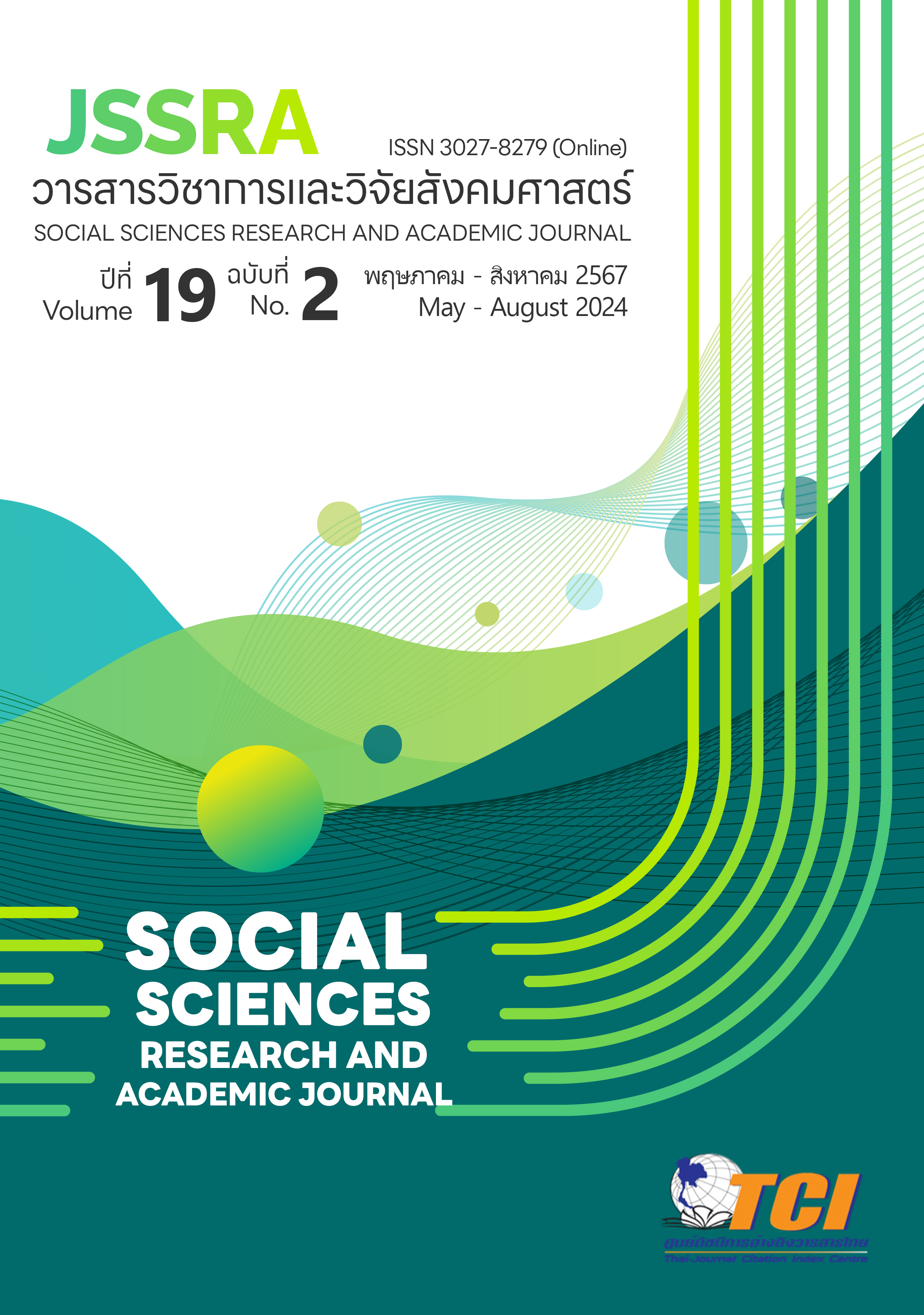The Model or Creating an Agricultural Business in the Community According to the Guidelines for Strengthening the Local Potential of the New Sustainable Economic BCG Model
Main Article Content
Abstract
This research was the participatory action research. This research aimsed to: 1) study agricultural problems and analyze solutions, 2) develop a prototype of snack products from chili peppers and 3) develop a community agricultural business model. The target groups of this research were community leaders, farmers, government officials, teachers and students. The research area was Plakao Noi Village, Lam Klong Subdistrict, Mueang District, Kalasin Province. The sample group was chili pepper farmers in Plakao Noi Village.
Research Findings: The agricultural context of Plakao Noi Village, Moo 6, Lam Klong Subdistrict, Mueang District, Kalasin Province had a large area of chili pepper cultivation about 50 farm with a total yield of approximately 20,000 kilograms. Agricultural Problem Analysis found that there are problems of low chili prices and unsold fresh chili peppers which leads to spoilage. The analysis of solutions based on the BCG Model (Circular Economy) suggests that unsold chili peppers can be added value by processing them into products. Development of Snack Products from Chili Peppers found that chili peppers can be processed into snack products by frying them with herbs. Development of a Community Agricultural Business Model for Plakao Noi Village. The Conclusion of research can be used to solve the problem of low chili prices and unsold fresh chili peppers and to add value to chili peppers by processing them into products also provides a model for community agricultural business development that can be applied to other communities.
Article Details
References
Burkett, I. (2013). Using the Business Model Canvas for Social Enterprise Design. Retrieved November 4, 2023, from http://knode.com.au/wp-content/uploads/Knode_BusModCanvSocEntDesign_E1LR_30p.pdf.
Cooper, G. (1990). Cognitive Load Theory as an Aid for Instructional Design. Australasian Journal of Educational Technology, 6(2).
Hongcharu, B. (2011). Instantaneous Marketing: An Analysis of Processes to Make a Connection with Customers Through New Communications Technologies. International Journal of Management & Information Systems (IJMIS), 15(4), 113-122.
Ministry of Higher Education, Science, Research and Innovation. (2019). BCG in Action Proposal: The New Sustainable Growth Engine, Economic Model for Sustainable Development. Bangkok: Author.
National Science and Technology Development Agency. (2019). Bioeconomy. (3rd ed.), Pathum Thani: National Science and Technology Development Agency. (In Thai).
Nithichaianan, N. and Chidchob, T. (2022). The Guidance to Develop Capabilities and Competitiveness of Community Businesses to Support Community Economies Toward Stability and Sustainability: A Case Study of Community Businesses in Kap Choeng District, Surin Province. Research and Development Journal, Loei Rajabhat University, 17(59), 84-92. (In Thai).
Osterwalder, A. and Pigneur Y. (2010). Business Model Generation-A Handbook for Visionaries, Game Changers and Challengers. Hoboken, New Jersey: John Wiley and Sons.
Ruenwai, R., Chaiysing, W., Passorn, S. and Thana, S. (2023). Characterization of Phu Lae Pineapple Wastes and Potential Application in the Circular Economy. Health Science, Science and Technology Reviews, 16(2), 106-117. (In Thai).
Sudprasert, K. (1994). Participatory Action Research of Practitioners. Bangkok: Human Resource Development Project Office. (In Thai).
Tanratanakul, S. and Seedapang, K.(2023). Community Development Based on Sufficiency Economy to Create Jobs and Sustainable Community Income. Journal of Management Science and Communication Faculty of Management Science Chiang Mai Rajabhat University, 2(1), January - June 2023. (In Thai).


